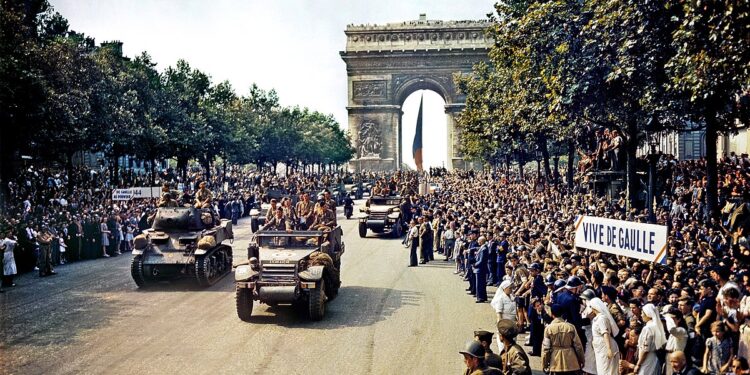The Liberation of Paris in 1944 marked a pivotal moment in World War II, signifying the end of German occupation and the restoration of French sovereignty. After years of suffering under Nazi rule, Parisians experienced an overwhelming sense of joy and relief as Allied forces, led by the Free French 2nd Armored Division under General Philippe Leclerc, entered the city on August 25.
The liberation was the result of a multifaceted campaign known as Operation Overlord, which involved extensive planning and coordination among Allied forces. The operation included a massive amphibious assault on the beaches of Normandy on June 6, 1944 (D-Day), paving the way for the subsequent push towards Paris.
In the weeks leading up to the liberation, the French Resistance played a crucial role by sabotaging German supply lines and communications, weakening the occupiers’ hold on the city. As Allied troops advanced, Parisians took to the streets in widespread acts of defiance, culminating in a city-wide uprising on August 19. Barricades were erected, and fierce street battles ensued between the Resistance and German forces.
Realizing the untenable situation, German General Dietrich von Choltitz defied Adolf Hitler’s orders to destroy the city’s infrastructure and instead chose to surrender. On August 25, 1944, French and American troops entered Paris, greeted by throngs of jubilant citizens waving French flags and showering them with flowers. The iconic photograph of the French tricolor flag flying atop the Eiffel Tower symbolized the city’s liberation and its return to freedom.
The liberation of Paris had far-reaching consequences, boosting Allied morale and marking a turning point in the war. It also had significant implications for France, as the nation reclaimed its capital and took steps towards rebuilding and reconciliation. The event showcased the power of collective resistance and international cooperation, highlighting the indomitable spirit of a people determined to regain their freedom.
In conclusion, the Liberation of Paris in 1944 was a moment of triumphant unity, a beacon of hope during the dark days of World War II. The courage of the French Resistance, the determination of the Allied forces, and the resilience of the Parisian populace came together to cast off the yoke of oppression and restore the City of Light to its rightful place as a symbol of freedom.
newshub



Recent Comments